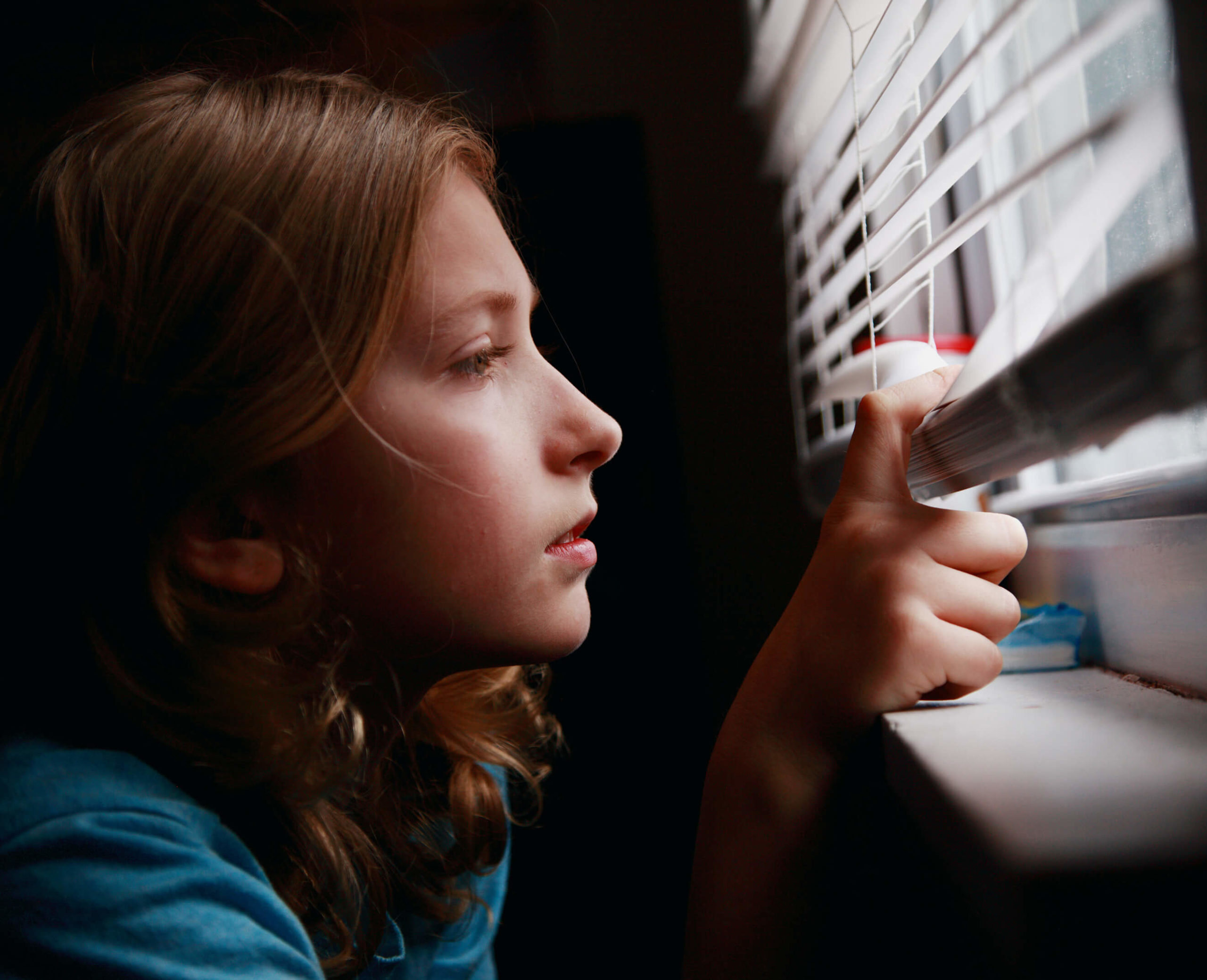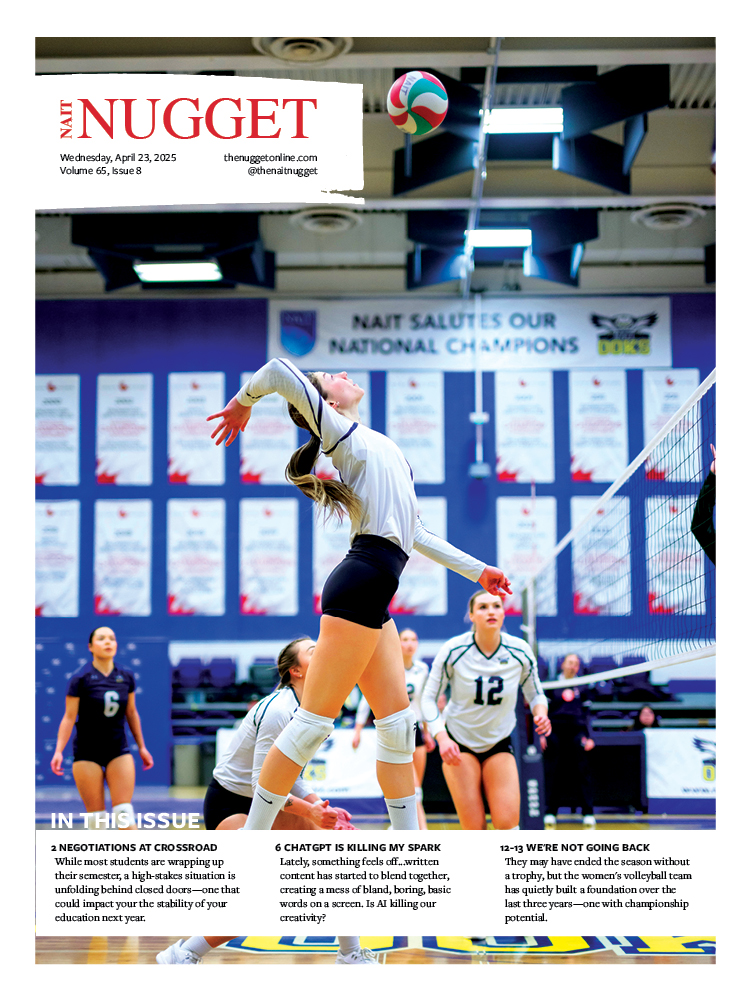By Tanya Spencer, Lead for Student Counselling and Chaplaincy
Six months ago, if a NAIT student told me they hadn’t left the house for several weeks, that they had to force themselves to buy groceries, that they avoided in-person classes and public parks, and insisted that no one, even close family members, come any closer than 6 feet, the word ‘agoraphobia’ would have sprung to mind. I’d be suggesting that they seek either talk therapy or pharmacological support for severe anxiety.
Present day, with few exceptions, many of us find ourselves living an agoraphobic lifestyle.
As we negotiate the frustrations and rewards of no commute and elastic waistbands, are we built to endure quarantine?
And like someone with pre-COVID agoraphobia, to what extent does fear play a role?
Lastly, what if the only thing harder than going into quarantine is coming out of quarantine?
Humanity has survived countless wars, natural disasters, ice ages, and plagues in its 300,000-year history. Similarly, before the Industrial Revolution, it was common to spend nearly all of one’s life at home, perhaps straying a massive 3 kilometres to attend a wedding in a nearby village. So, in short, yes, humans are well-designed to weather confinement, provided we can feed ourselves and take shelter from extreme temperatures. And we did it without the internet (without any mass communication in fact) and without a spare room converted to toilet paper storage.
A major driver of our natural instinct to confine ourselves is fear. It’s what motivates someone with agoraphobia and, in the face of a virus we are only starting to know, it’s what has motivated an unparalleled economic and social shutdown. As a temperamentally-anxious acquaintance remarked in the first week of the shut-down, “now you all know how I feel every day!” Paralysing anxiety does not seem ludicrous if our response is in proportion to the danger.
Conversely, we’ve learned a lot about COVID-19 lately. I could tell you that COVID-19 is not nearly as contagious as we first feared – it is not airborne, nor is it easily communicable in brief physical proximity. I could tell you that, at last word, there are only 242 cases in the Edmonton area, 16 of those in hospital; the chance of encountering someone with COVID, let alone catching it in a city of over a million is astronomically small.
But let me ask you, does knowing these things change how you feel about staying home? My guess is, for about 90% of us, the answer is no. How does one reconcile COVID as the next Ebola and, darn it, we can’t afford another SARS versus why are we sitting at home ruining the world economy so I can’t get a job?
Thus, we are left to at least try to manage our fears and envision a return to in-person interactions either because of or in spite of them. I believe the keys to weathering a quarantine are the very same that promote a successful emergence from quarantine. What are those cave-dwelling era skills that haven’t failed us yet?
Resilient (and happy) people nourish and are nourished by their tribe.
Our logical families if not our biological families (thank you Armistead Maupin). In times of war or plague, mustering ‘our’ people and thinking about their safety increases the sense that we, individually, are safe. And our emotional brains don’t care if it’s over WhatsApp or Zoom. Chatting with, playing games with and sharing a meal with our chosen loved ones is the ticket, even if you doubt your rational ability to enjoy yet another online class or meeting.
If you find yourself equating ‘alone’ with ‘lonely,’ all is not lost.
Some are perfectly content to be alone and are well-practiced at it. Myself, a farm-raised introvert with too many hobbies, I’m quite content to be left to my own devices and yarn stash.
Those who long for a sense of social support and companionship – may I boldly guess that you have felt this way for a long time and the shutdown has complicated matters? That every communication about the shutdown has encouraged reaching out yet you still struggle to imagine how that might work? Fish around online for a group that shares your interests, a charity you can get behind either in spirit or with your time, a hobby a YouTuber can teach you, and if you still come up short, please accept my invitation to let us guide you.
Let altruism replace fear.
Being anxious stinks. COVID or not, folks who are driven by fear inevitably feel like crap after they act to escape that urgency; any sense of relief is fleeting. Fear likes to stick around and it will trick you into thinking it’s the smart choice.
Conversely, helping others is rewarding. At its heart, the shutdown is the new recycling. We are saving the planet one day at a time (at home). By distancing yourself physically from others, you are offering safety to everyone you know. As services, businesses and NAIT reopens, you offer a measure of comfort and ease to that schoolmate or family member who is scared witless of catching something. Acting selflessly because you choose to behave responsibly is a lasting reward.
Expect to be bowled over by emerging from quarantine.
Odds are we all will experience a bizarre rush of emotion the first time we see someone we used to interact closely with daily. And there is no scripting or controlling our emotions, my friends. That’s our cave-dwelling brain trying to figure out if that person we trust is safe or not. The ‘yes! that’s my peep’ relief wrestling with ‘wait! everyone has cooties’ instinct.
Life does not start tomorrow and it will never be the same. Is how you spend your time on shutdown in line with what you value and want out of life? 9/11 was 20 years ago (!) and we thought that was a sea change. I’m expecting the whole world to feel like the security line at the airport… with bits of yellow tape every 6 feet… but we do so that others might feel at ease. And that will put us at ease.
______________________________________________________________________________

Photo via Tanya Spencer
Tanya Spencer, Lead for Student Counselling and Chaplaincy, has a Ph.D. in Clinical Psychology and an arguably-intense though thoroughly-enjoyable alliance with all things yarn- and jigsaw-puzzle-related. She is excelling at her impromptu second trip through Grade Four.
Student Counselling remains your ally and open via phone and video. Request an appointment using our webform at nait.ca/counselling. Summer hours are 9 am – 3:30 pm. Check out our new online questionnaires before every appointment to serve you better – details at booking.






